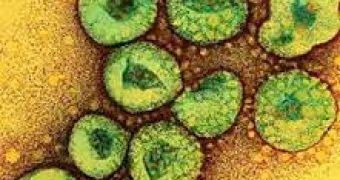On May 12, the World Health Organization (WHO, for short) issued a press release detailing the information it has thus far gathered with respect to a new coronavirus believed to have caused the death of at least 18 people in the Middle East and Europe.
WHO admits that, for the time being at least, data concerning the particularities of this new disease are still few and far between.
However, the press release emphasizes the fact that, as far as specialists can tell, the virus can spread from one person to another provided that the two individuals come in close contact with one another.
“Of most concern, however, is the fact that the different clusters seen in multiple countries increasingly support the hypothesis that when there is close contact this novel coronavirus can transmit from person-to-person,” reads the official website for WHO.
“This pattern of person-to- person transmission has remained limited to some small clusters and so far, there is no evidence that this virus has the capacity to sustain generalized transmission in communities,” the organization further details.
It appears that, despite ongoing efforts to collect information concerning this novel virus, specialists are still unable to say how it is that people get infected.
Thus, some place the blame on contaminated surfaces, whereas others argue that animals might be the ones to blame.
Furthermore, data concerning just how widespread this virus now is are pretty much lacking, WHO explains.
“At this time there are some things about this new disease we understand. However I would like to remind everyone that this is a new infection and there are also many gaps in our knowledge that will inevitably take time to fill in,” WHO Media Coordinator Gregory Härtl wished to emphasize.
The virus first started affecting people back in 2012. As far as researchers can tell, elderly men who are already suffering with various other medical conditions are the ones most vulnerable to it.
Most of the people who become infected with this new coronavirus develop pneumonia.
WHO says that all countries have to inform the public with respect to this novel health threat, up their surveillance levels and not keep silent on the infection cases they might encounter.

 14 DAY TRIAL //
14 DAY TRIAL //